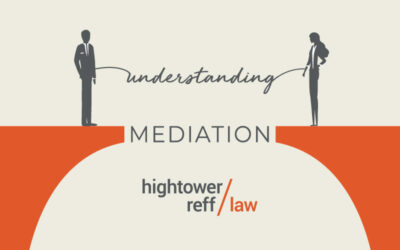An attorney who knows their stuff when it comes to dividing retirement accounts in divorce can be worth their weight in gold – almost literally in some cases. Properly dividing retirement accounts in a way that’s consistent with all applicable laws is crucial to avoid complications, including unwelcome tax surprises.
In this, the final installment of our Divorce and Taxes series, we look at taxing trip-ups to watch out for when you’re divvying up your retirement nest egg (read Divorce and Taxes Part 1, Part 2, and Part 3).
Dividing Retirement Accounts in Divorce — Employer-Sponsored Plans
Under most circumstances, if you withdraw funds from retirement accounts – like a 401(k) – before you retire, you’ll pay a substantial tax penalty. However, if you’re divorcing, funds withdrawn from your employer-sponsored retirement accounts can be distributed to your spouse without a tax penalty for you.
A key thing to remember is that this sort of divorce retirement account division has to be done via a properly executed qualified domestic relations order (QDRO). If the QDRO doesn’t comply with the requirements of federal law, it won’t be valid.
With this in mind, to ensure your QDRO meets all requirements, not only must the judge in your divorce case sign off on it, the retirement account’s plan administrator should review and approve it as well.
While the retirement plan participant isn’t taxed if funds are distributed to a spouse via a QDRO during a divorce, usually the spouse who receives the funds does have to include it in their taxable income.
Tax Trip Wire Tip-off
If you’re receiving a divorce distribution via QDRO, there’s a seemingly simple way you can avoid tax consequences (if you do it right). Roll over the eligible QDRO distribution into an individual retirement account (IRA) or another qualified retirement plan.
I say “seemingly” simple, because, as you may have guessed from this subsection’s heading, there are some tax trip wires that can cause problems with your plans.
For example, be aware that if any part of the eligible rollover distribution is paid directly to you, the payer usually has to withhold 20% for income tax. Also, even though you only get to put 80% of the money in your pocket, the IRS considers you to have received all of it.
As if that weren’t enough of a tax trap – there’s another. Equally as important to remember is that you usually have to include in your taxable income any amount (including the 20% the payer withheld for taxes) that you don’t rollover within 60 days to another qualified plan. Also, keep in mind that rules regarding rollovers involving Roth’s are different.
But don’t despair. There is — in most circumstances — a way to avoid all this mess, including the tax withholding. If you plan to do a rollover, simply have your distribution rollover directly to your qualified retirement account.
Dividing Retirement Accounts in Divorce — Individual Retirement Accounts
Much like an employer-sponsored retirement account, if you transfer your interest in a traditional Individual Retirement Account to your spouse or former spouse in a support or divorce decree, it’s not taxable for you.
However, if your divorce decree is entered by the end of the tax year, you’re out of luck if you made contributions to your spouse’s IRA. No tax deductions on those contributions for you. Unfortunately, you can only deduct your contributions to your IRA.
[infographic id=”x1492123518971″]
This article should not be construed as legal advice. Situations are different and it’s impossible to provide legal advice for every situation without knowing the individual facts.
Author, Hightower Reff Partner Attorney Tracy Hightower, holds both a Juris Doctor and a Master of Laws in Taxation. For more about Tracy, visit her profile page.




